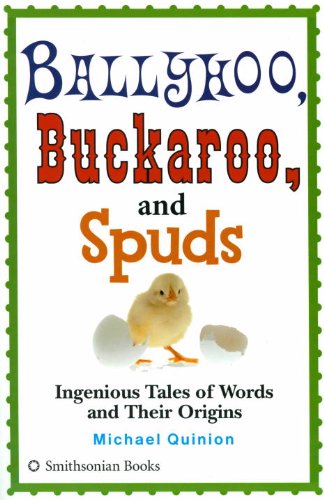Smithsonian Books
Ballyhoo, Buckaroo, and Spuds: Ingenious Tales of Words and Their Origins
Regular price
$7.95 USD
Regular price
Sale price
$7.95 USD
Unit price
per
Shipping calculated at checkout.
Couldn't load pickup availability
Title: Ballyhoo, Buckaroo, and Spuds: Ingenious Tales of Words and Their Origins
Author: Michael Quinion
ISBN: 9781588342195
Publisher: Smithsonian Books
Published: 2004
Binding: Hardcover
Language: English
Condition: Used: Near Fine
Excellent, unmarked copy with little wear and tight binding. We ship in recyclable American-made mailers. 100% money-back guarantee on all orders.
Anthropology 1691471
Publisher Description:
The real story of a word or phrase's origin and evolution is often much stranger--and much more humorous--than the commonly accepted one; the many entries will certainly leave you "happy as a clam." Happy as a clam? Really, what's so happy about being a clam? The saying makes much more sense when it's paired with its missing second half: "at high water." Now a clam at high water is a safe clam, and thus a happy clam. From the bawdy to the sublime, Quinion's explanations and delightful asides truly prove that the "proof is in the pudding."
Author: Michael Quinion
ISBN: 9781588342195
Publisher: Smithsonian Books
Published: 2004
Binding: Hardcover
Language: English
Condition: Used: Near Fine
Excellent, unmarked copy with little wear and tight binding. We ship in recyclable American-made mailers. 100% money-back guarantee on all orders.
Anthropology 1691471
Publisher Description:
The real story of a word or phrase's origin and evolution is often much stranger--and much more humorous--than the commonly accepted one; the many entries will certainly leave you "happy as a clam." Happy as a clam? Really, what's so happy about being a clam? The saying makes much more sense when it's paired with its missing second half: "at high water." Now a clam at high water is a safe clam, and thus a happy clam. From the bawdy to the sublime, Quinion's explanations and delightful asides truly prove that the "proof is in the pudding."

